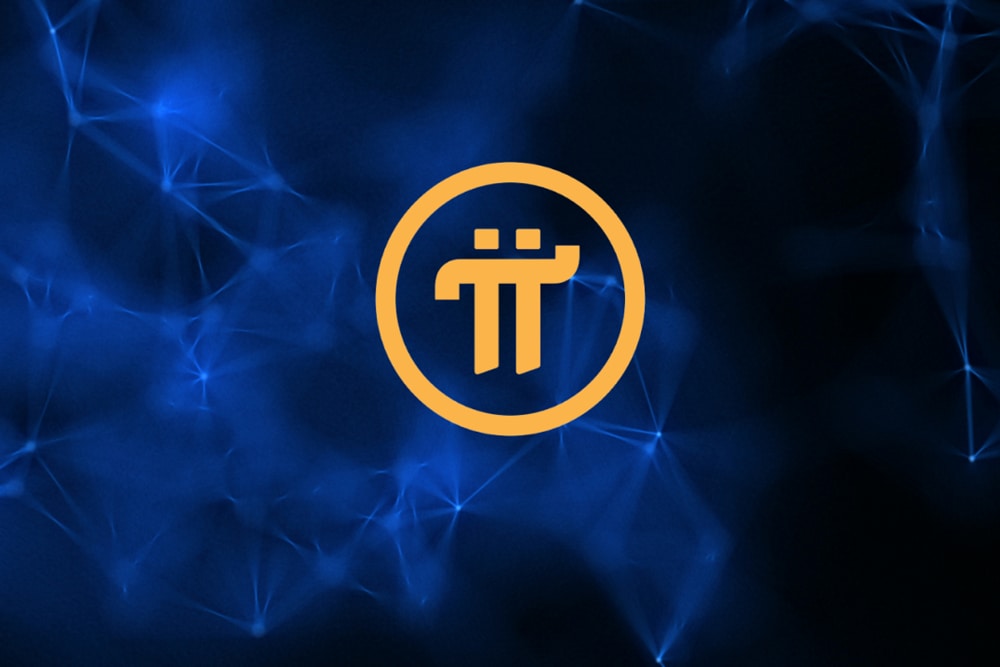Cryptocurrency tax
Just two months later, on January 3, 2009, Nakamoto mined the first block on the Bitcoin network, known as the genesis block, thus launching the world’s first cryptocurrency. https://simplenotch.com/about-the-gentleman-s-code/ Bitcoin price was $0 when first introduced, and most Bitcoins were obtained via mining, which only required moderately powerful devices (e.g. PCs) and mining software. The first known Bitcoin commercial transaction occurred on May 22, 2010, when programmer Laszlo Hanyecz traded 10,000 Bitcoins for two pizzas. At Bitcoin price today in mid-September 2021, those pizzas would be worth an astonishing $478 million. This event is now known as “Bitcoin Pizza Day.” In July 2010, Bitcoin first started trading, with the Bitcoin price ranging from $0.0008 to $0.08 at that time.
Sommige hardware wallets kunnen ook worden verbonden met gedecentraliseerde beurzen of web wallets, waardoor gebruikers het probleem van toegankelijkheid en het gebrek aan integratie met handelsfuncties kunnen oplossen.
The news has produced commentary from tech entrepreneurs to environmental activists to political leaders alike. In May 2021, Tesla CEO Elon Musk even stated that Tesla would no longer accept the cryptocurrency as payment, due to his concern regarding its environmental footprint. Though many of these individuals have condemned this issue and move on, some have prompted solutions: how do we make Bitcoin more energy efficient? Others have simply taken the defensive position, stating that the Bitcoin energy problem may be exaggerated.
Pi cryptocurrency
The Open Network period will begin depending on the maturity of the Enclosed Network ecosystem and the progress of the network’s KYC. Open Network means that the firewall in the Enclosed Network period will be removed, allowing any external connectivity, e.g., to other networks, wallets, and anyone who wants to connect to Pi Mainnet.

The Open Network period will begin depending on the maturity of the Enclosed Network ecosystem and the progress of the network’s KYC. Open Network means that the firewall in the Enclosed Network period will be removed, allowing any external connectivity, e.g., to other networks, wallets, and anyone who wants to connect to Pi Mainnet.
March 2023: KYC application was open to all eligible Pioneers, with a tentative KYC program that gives accounts with more complex properties a chance to proceed with KYC and provide proof of their identities.
Pi Chats is a built-in messaging solution in the Pi App for Pioneers to engage in open-format discussions which has evolved into a communications app with a Web3 mechanism designed to encourage constructive connections while curbing unwanted communications.
Program concept to support and encourage local businesses to use Pi initially announced on PiDay, March 14, 2023, followed by Pioneers providing their own input and suggestions regarding the program plan via the Support Portal.
In addition to decentralization, bitcoin, or cryptocurrencies in general, share a few nice properties that make money smarter and safer, although different cryptocurrencies may be stronger in some properties and weaker in others, based on different implementations of their protocols. Cryptocurrencies are held in cryptographic wallets identified by a publicly accessible address, and is secured by a very strong privately held password, called the private key. This private key cryptographically signs transactions and is virtually impossible to create fraudulent signatures. This provides security and unseizability. Unlike traditional bank accounts that can be seized by government authorities, the cryptocurrency in your wallet can never be taken away by anyone without your private key. Cryptocurrencies are censorship-resistant due to the decentralized nature because anyone can submit transactions to any computer in the network to get recorded and validated. Cryptocurrency transactions are immutable because each block of transactions represents a cryptographic proof (a hash) of all the previous blocks that existed before that. Once someone sends you money, they cannot steal back their payment to you (i.e., no bouncing checks in blockchain). Some of the cryptocurrencies can even support atomic transactions. “Smart contracts” built atop these cryptocurrencies do not merely rely on law for enforcement, but directly enforced through publicly auditable code, which make them trustless and can potentially get rid of middlemen in many businesses, e.g. Escrow for real estate.
Cryptocurrency r
NFTs are multi-use images that are stored on a blockchain. They can be used as art, a way to share QR codes, ticketing and many more things. The first breakout use was for art, with projects like CryptoPunks and Bored Ape Yacht Club gaining large followings. We also list all of the top NFT collections available, including the related NFT coins and tokens.. We collect latest sale and transaction data, plus upcoming NFT collection launches onchain. NFTs are a new and innovative part of the crypto ecosystem that have the potential to change and update many business models for the Web 3 world.
The first chain to launch smart contracts was Ethereum. A smart contract enables multiple scripts to engage with each other using clearly defined rules, to execute on tasks which can become a coded form of a contract. They have revolutionized the digital asset space because they have enabled decentralized exchanges, decentralized finance, ICOs, IDOs and much more. A huge proportion of the value created and stored in cryptocurrency is enabled by smart contracts.
At the time of writing, we estimate that there are more than 2 million pairs being traded, made up of coins, tokens and projects in the global coin market. As mentioned above, we have a due diligence process that we apply to new coins before they are listed. This process controls how many of the cryptocurrencies from the global market are represented on our site.
The two major changes are the introduction of the Merkelized Abstract Syntax Tree (MAST) and Schnorr Signature. MAST introduces a condition allowing the sender and recipient of a transaction to sign off on its settlement together. Schnorr Signature allows users to aggregate several signatures into one for a single transaction. This results in multi-signature transactions looking the same as regular transactions or more complex ones. By introducing this new address type, users can also save on transaction fees, as even complex transactions look like simple, single-signature ones.
Cryptocurrencies
Legal scholars criticize the lack of regulation, which hinders conflict resolution when crypto assets are at the center of a legal dispute, for example a divorce or an inheritance. In Switzerland, jurists generally deny that cryptocurrencies are objects that fall under property law, as cryptocurrencies do not belong to any class of legally defined objects (Typenzwang, the legal numerus clausus). Therefore, it is debated whether anybody could even be sued for embezzlement of cryptocurrency if he/she had access to someone’s wallet. However, in the law of obligations and contract law, any kind of object would be legally valid, but the object would have to be tied to an identified counterparty. However, as the more popular cryptocurrencies can be freely and quickly exchanged into legal tender, they are financial assets and have to be taxed and accounted for as such.
In the United Kingdom, as of 10 January 2021, all cryptocurrency firms, such as exchanges, advisors and professionals that have either a presence, market product or provide services within the UK market must register with the Financial Conduct Authority. Additionally, on 27 June 2021, the financial watchdog demanded that Binance, the world’s largest cryptocurrency exchange, cease all regulated activities in the UK.
Switzerland was one of the first countries to implement the FATF’s Travel Rule. FINMA, the Swiss regulator, issued its own guidance to VASPs in 2019. The guidance followed the FATF’s Recommendation 16, however with stricter requirements. According to FINMA’s requirements, VASPs need to verify the identity of the beneficiary of the transfer.
The legal status of cryptocurrencies varies substantially from country to country and is still undefined or changing in many of them. At least one study has shown that broad generalizations about the use of bitcoin in illicit finance are significantly overstated and that blockchain analysis is an effective crime fighting and intelligence gathering tool. While some countries have explicitly allowed their use and trade, others have banned or restricted it. According to the Library of Congress in 2021, an “absolute ban” on trading or using cryptocurrencies applies in 9 countries: Algeria, Bangladesh, Bolivia, China, Egypt, Iraq, Morocco, Nepal, and the United Arab Emirates. An “implicit ban” applies in another 39 countries or regions, which include: Bahrain, Benin, Burkina Faso, Burundi, Cameroon, Chad, Cote d’Ivoire, the Dominican Republic, Ecuador, Gabon, Georgia, Guyana, Indonesia, Iran, Jordan, Kazakhstan, Kuwait, Lebanon, Lesotho, Macau, Maldives, Mali, Moldova, Namibia, Niger, Nigeria, Oman, Pakistan, Palau, Republic of Congo, Saudi Arabia, Sengeal, Tajikistan, Tanzania, Togo, Turkey, Turkmenistan, Qatar and Vietnam. In the United States and Canada, state and provincial securities regulators, coordinated through the North American Securities Administrators Association, are investigating “Bitcoin scams” and ICOs in 40 jurisdictions.
Systems of anonymity that most cryptocurrencies offer can also serve as a simpler means to launder money. Rather than laundering money through an intricate net of financial actors and offshore bank accounts, laundering money through altcoins can be achieved through anonymous transactions.
